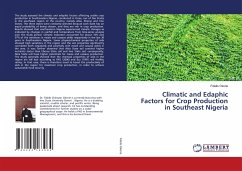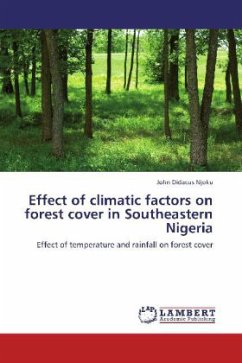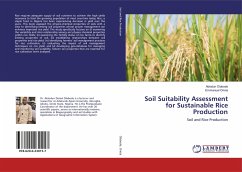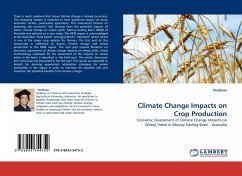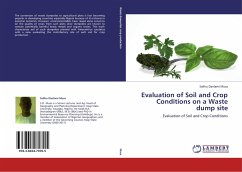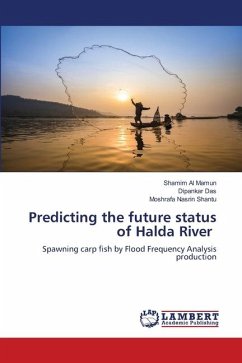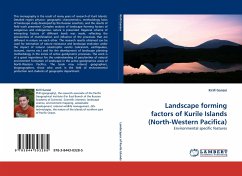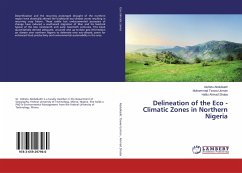This study assessed the climatic and edaphic factors affecting arable crop production in Southeastern Nigeria, conducted in three, out of five States in the southeast region of the country, namely Abia, Ebonyi and Imo States. The three states were randomly selected because each state has an equal probability of being chosen, and they are rich in crop production. Results showed that southeastern Nigeria experienced climatic changes as indicated by changes in rainfall and temperature from time-series analysis over the study period. Climatic indicators accounted for about 10% and 37% of the variations in maize and cassava yields respectively in the last 30 years in Southeastern Nigeria. Some physicochemical properties of soils showed high variations in the region and the soil properties significantly correlated both negatively and positively with maize and cassava yields in the area. It was further observed that Abia State soil contains higher nutrients status than Ebonyi State soiland Imo State soil, consequently, Abia State will have higher potentials for maize and cassava production. The study generally showed that the chemical properties of soils in the region are still low according to FAO (2006) and Esu (1991) soil fertility rating. In that case, there is therefore need to boost the productivity of soils in the region for maximum crop production, in order to achieve sustainable food security.
Bitte wählen Sie Ihr Anliegen aus.
Rechnungen
Retourenschein anfordern
Bestellstatus
Storno

